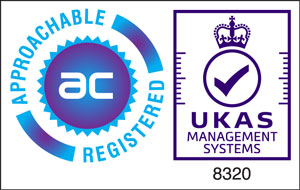- Tailored learning solutions
- +44 (0)1252 810 061
- info@skillset.co.uk
We’re all different and learn in different ways. That’s generally down to how we think, but physical characteristics also play a part. For instance, if you’re unable to read text then you won’t learn much from a simple PowerPoint presentation. We need to think about physical abilities when designing eLearning so that it can be used by everyone. That’s what we mean when we refer to the “accessibility” of eLearning.
Everyone should be able to have a great learning experience so making your eLearning accessible is essential. Organisations in the UK are bound by law to comply with accessibility requirements for their employees.
“In the case of disability, employers and service providers are under a duty to make reasonable adjustments to their workplaces to overcome barriers experienced by disabled people.” – The Equality Act 2010.
The World Wide Web Consortium (W3C) has published the WCAG 3.0 Web Content Accessibility Guidelines to help eLearning creators design content that is accessible for everyone. This provides recommendations for making digital content more accessible. These guidelines, which also apply to websites, consist of four principles. All online content should be:
So, how do we, at SkillSet, apply these principles to the eLearning we create?
Some learners may prefer an audio or visual version of an eLearning course. SkillSet always includes the text with all audio content, either via a transcript or closed captions. This is to cater for all those who are hard of hearing, or have a sight impairment and therefore use a screen reader. This includes multimedia content such as videos.
Contrast is key to the readability of text. We can create high-contrast eLearning to assist users with sight impairments. SkillSet used this technique when creating high-contrast eLearning modules for Scope. Click ‘Download Case Study’ on the right to find out more about this project.
Some of the ways in which we interact with our IT devices can cause problems for some learners. Drag and drop won’t work on a mobile phone, for instance, or for anyone using keyboard navigation.
Words like “Click” imply that learners should use a mouse. We often use “Select” or, as seen in the example below, “Submit” rather than “Click here” in our eLearning modules.

eLearning developers also need to ensure course navigation is clear and easy to access for all learners. Some learners will use the tab key on a keyboard to navigate through a course, instead of a mouse.
SkillSet always ensures that the courses we build allow easy access to each module. Within a suite of courses, we ensure consistency in how navigation and content are organised to help decrease the learning curve and improve accessibility for all users.
It is important to be clear and concise when developing an eLearning course. SkillSet developers use active voice and avoid long sentences. We also try to use familiar terms for important concepts and use them consistently throughout a course.
Before passing material to a client, we review it for clarity and remove any words that don’t convey additional information.
SkillSet’s consultants are highly experienced in using Articulate’s content creation tools (including Storyline 360 and Rise 360) to design and develop eLearning. These tools support WCAG 3.0 Level AA, including screen readers, keyboard navigation, visible focus indicators, closed captions, alt text and more.
SkillSet developed SCORM-compliant content for the Civil Service College, and delivered this on our own learning platform – elasticLearning. Users can re-start at the last point that they reached, or return to any other point in the course, allowing them to learn at the appropriate pace and increase their engagement with the course. Click ‘Download Case Study’ on the left to find out more about this project.
Following accessibility guidelines is a must for eLearning modules. Not only will this help you comply with legislation, but it also ensures that you’re creating great learning experiences for everyone. If you need more help and support on making sure your organisations eLearning is accessible to all, get in touch with SkillSet today!
SKILLSET LTD
(part of Latitude 91 Ltd)
The Square
Basing View
Basingstoke
Hampshire
RG21 4EB
Tel: +44(0)1252 810 061
E: info@skillset.co.uk
©2025 SkillSet Ltd

